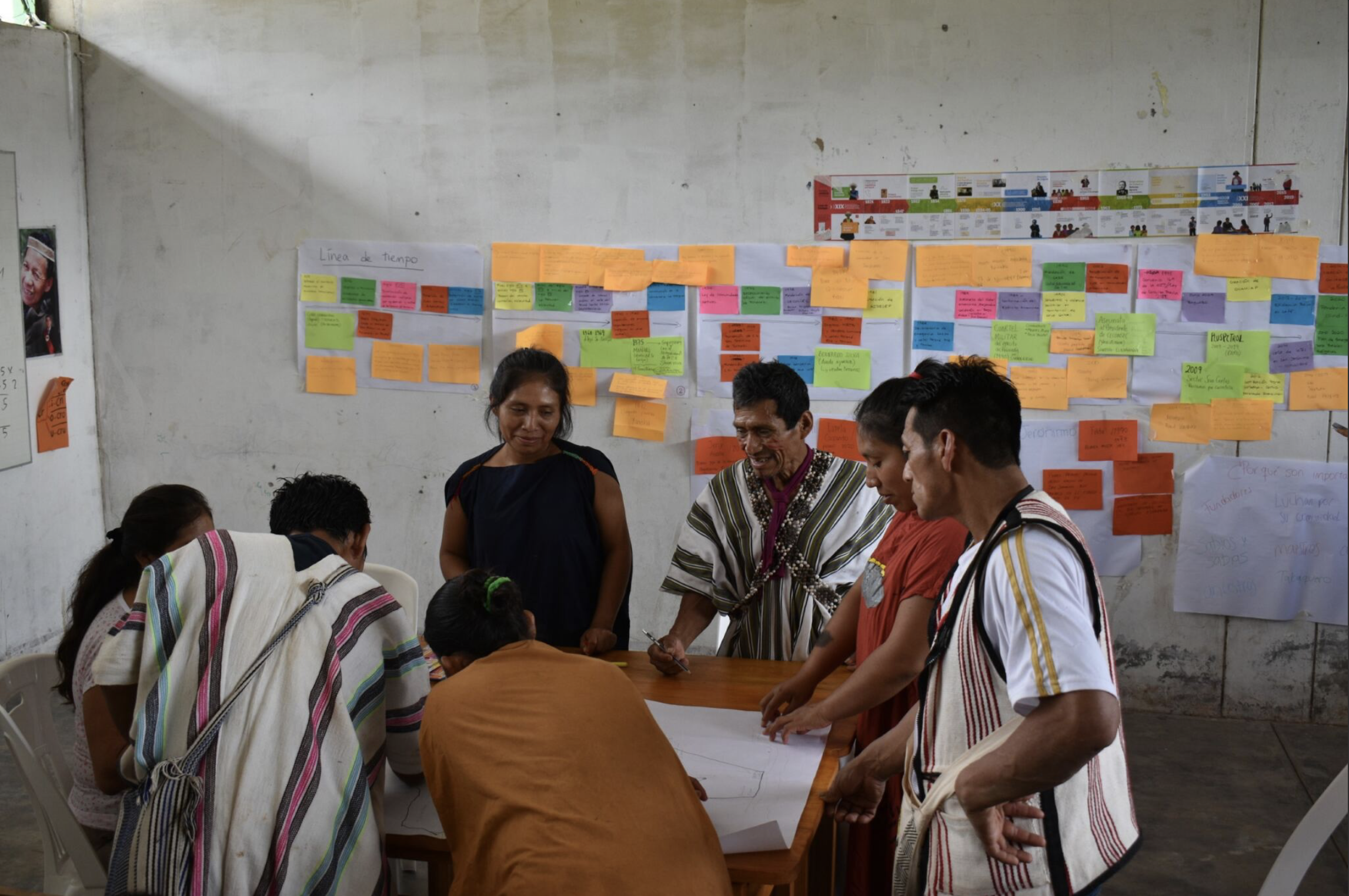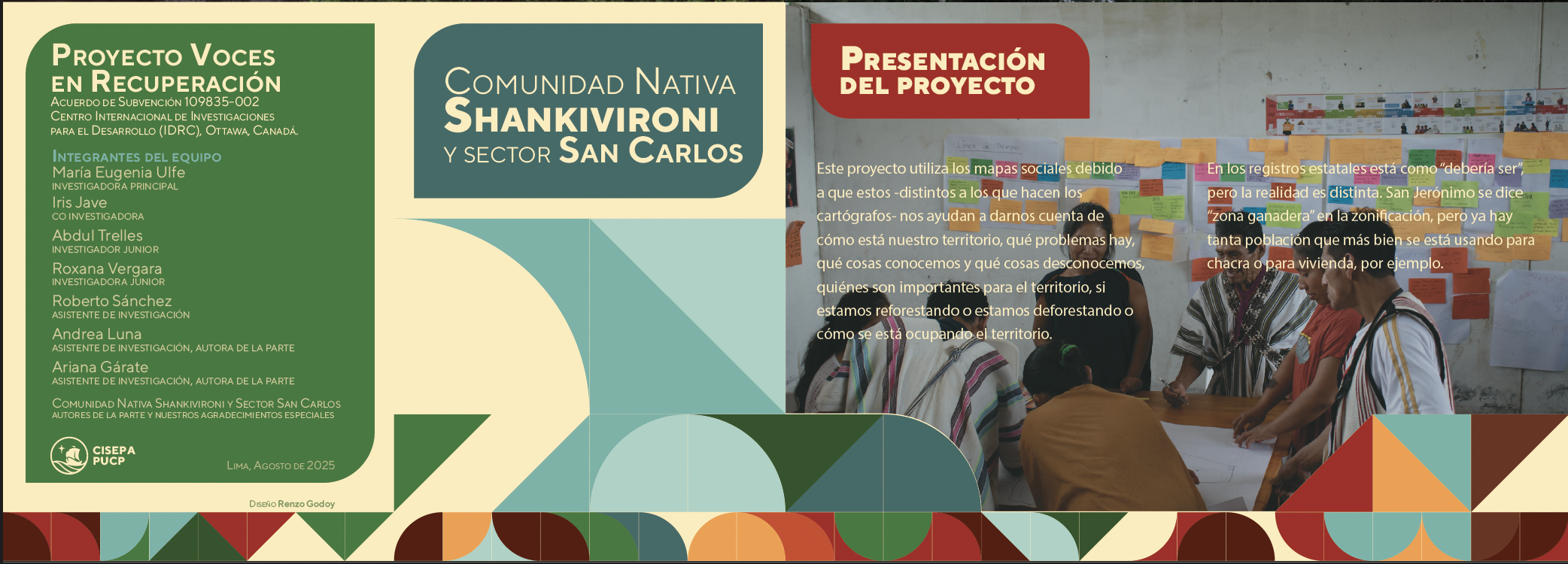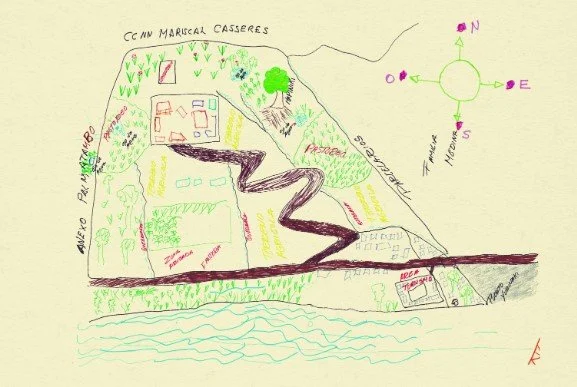
Co-production and support
The Voices of Recovery project has worked with the Shankivironi, San Jerónimo and Potsoteni communities to strengthen their voices, their knowledge and their bonds of solidarity.
Identification of barriers in the implementation of an educational model designed for the rural setting
In the case of the Asháninka community of Potsoteni, the project helped to identify and document a series of structural barriers faced in the implementation of the Residential Secondary Education Service Model.
Through this collaboration, six critical issues were highlighted: precarious infrastructure, lack of coordination between educational services, lack of bilingual intercultural training, confusion in the implementation of the educational model, food insecurity, and limited family involvement.
This participatory analysis strengthened the community voice – especially that of teenage students – and generated essential evidence to inform improvements in educational policies in Amazonian indigenous territories.
Reconstruction of their history
A historical reconstruction was carried out based on timelines in the three communities involved in the project, from their founding processes, through experiences of forced labour, the processes of land titling as native communities, and especially the violence of the internal armed conflict – which caused mass displacements and deeply affected their collective memories.
This collaboration also allowed the identification of contemporary cross-cutting issues: conflicts over land access and tensions between indigenous people and settlers, economic and environmental crises, loss of ancestral knowledge and language, deficiencies in education and health, gender inequalities, weakening of community leadership, and complex relations with the State and external organisations, contributing to the recording of their historical experiences of resistance and current challenges.
These timelines are rooted in their territories, also showing how dispossession has been systematic and can be seen as part of these structural violences.
Timelines San Jerónimo and Shankivironi
We developed a results feedback process in the native communities of San Jerónimo and Shankivironi through the creation of community timelines that shared the main findings of the research. These timelines captured the history of each community, highlighting milestones, figures, and processes that also enrich the collective memory of the Asháninka people and their ancestral leaders. The materials were collectively created during workshops held in May 2024, in which community members from both communities participated. Finally, the timelines were handed over to the community leaders, who distributed them among the community members and schools, thus strengthening local memory.
San Jerónimo and Shankivironi Maps
Within the framework of the same project, we developed a process of creating community maps together with the native communities of San Jerónimo and Shankivironi. These maps, produced by the community members themselves, reflected their knowledge of the territory and were conceived as tools to strengthen community management and delimitation. The maps produced are both territorial and social and cultural, as they integrate elements of everyday life, historical memories, and the relationships that shape the community space. The final versions were handed over to both communities, with the aim of supporting their local projects related to the defence of their territory.
See San Jerónimo map
See Shankivironi map
Brochures
We developed a process for returning results to the Potsoteni native community through informational brochures that shared the findings of our research in an accessible way. The process included a workshop structured in three sessions aimed at the allied indigenous organisation CARE, educational staff and the general population of Potsoteni. The brochures addressed two main topics: the history, violence and crises in the community, and the challenges in implementing the secondary education model in Potsoteni, enabling the findings to be understood and discussed by the various community stakeholders involved in the project.
International Workshop on Indigenous Peoples and Climate Justice
The Voices of Recovery project co-organised with the Indigenous Visions for Climate Justice project the International Workshop 'Indigenous Peoples and Climate Justice: Dialogues Towards COP30', bringing together Andean-Amazonian indigenous representatives from seven South American countries.
Both projects, funded by the IDRC, established spaces for intercultural dialogue where indigenous knowledge was integrated with approaches from researchers, NGOs and public officials. The methodology included participatory mapping, group exchanges and experience fairs on land use and indigenous knowledge. The workshop facilitated the collaborative construction of climate justice strategies in preparation for COP30.
Policy document development
The project developed a policy document on intercultural health, identifying the tensions between state standardisation and specific territorial needs. The limits of current health service categories in indigenous territories were analysed. The work included dialogue with public officials and indigenous organisations to examine the regulatory barriers that affect the recategorisation of establishments and the challenges of implementing effective intercultural policies.



